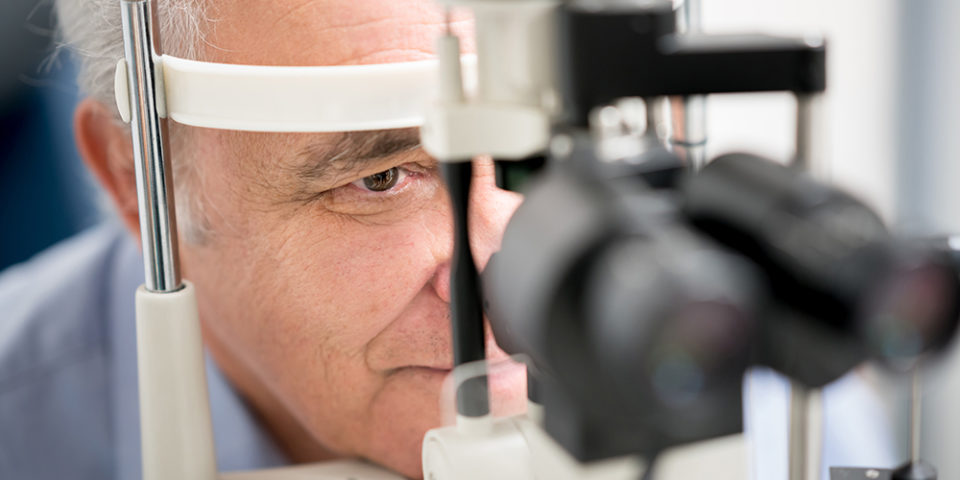What to know about cataracts
If you’re over age 60 and have had trouble driving at night because of the glare from other cars’ headlights, you might have cataracts. Ophthalmologist Shawn Iverson, DO, explained what you need to know about this common condition.
What causes cataracts? At what age do they typically start?
Everyone is born with a lens in their eye that helps with focusing. When this natural lens gets cloudy, we call it a cataract. Cataracts typically start to form when you are 60 years old, but they may not cause vision problems until much older. Sometimes they can cause vision problems much earlier, even in babies and young children.
What are some signs you might have cataracts?
Cataracts often form very slowly over many years, and the signs of cataracts might be quite subtle. Most commonly, individuals start to feel like they just don’t see as clearly as they used to. Other common symptoms are glare and difficulty driving, particularly at night.
How are cataracts treated? When should you have cataracts removed?
The only way to treat a cataract is to have cataract surgery. This is one of the most common surgical procedures performed throughout the world. We typically recommend you have the cataracts removed when you feel like your vision is impacting your daily living. If you cannot see the TV as clearly as you would like, if you have stopped driving at night because car headlight glare is too bad, or if you’ve made any other accommodations to how you live your life, you might want to consider having your cataracts removed.
What can you expect after cataract surgery? Will you have 20/20 vision?
After cataract surgery, you should relax and take it easy for a few days. You will be on some eye drops to help prevent infection and inflammation. Your vision will be a little blurry immediately after surgery, but it will improve day by day as things heal. Your surgeon’s goal is to get you 20/20 vision, but there are many factors than can impact your final vision. Your doctor will check you for other eye diseases when you are evaluated for cataract surgery and will talk to you about vision expectations.
How can you prevent cataracts from getting worse?
There is not too much you can do to prevent cataracts. Everybody gets cataracts eventually and there are no medical treatments to slow down progression. However, eating healthy – especially green, leafy vegetables – will help your overall eye health.
Find a doctor
Whether you’re looking for a primary care physician or need to see a specialist, we’re here to help with experienced, compassionate care near you.
Find a Doctor

